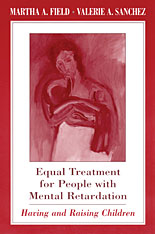
Engaging in sex, becoming parents, raising children: these are among the most personal decisions we make, and for people with mental retardation, these decisions are consistently challenged, regulated, and outlawed. This book is a comprehensive study of the American legal doctrines and social policies, past and present, that have governed procreation and parenting by persons with mental retardation. It argues persuasively that people with retardation should have legal authority to make their own decisions.
Despite the progress of the normalization movement, which has moved so many people with mental retardation into the mainstream since the 1960s, negative myths about reproduction and child rearing among this population persist. Martha Field and Valerie Sanchez trace these prejudices to the eugenics movement of the late nineteenth and early twentieth centuries. They show how misperceptions have led to inconsistent and discriminatory outcomes when third parties seek to make birth control or parenting decisions for people with mental retardation. They also explore the effect of these decisions on those they purport to protect. Detailed, thorough, and just, their book is a sustained argument for reform of the legal practices and social policies it describes.
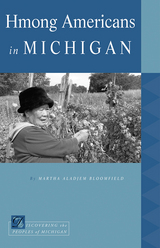

The countries of Central America, afflicted for many years by civil strife and economic stagnation, are entering a new era of peace, democracy, and economic development. Now, more than ever, it is necessary for reforms in the legal system to successfully support these changes.
This volume examines two fields of law in which reforms are especially crucial: the improvement of the judicial systems and other mechanisms for resolving noncriminal disputes, and modernization of the laws governing both tangible and "intellectual" property. Among the specific topics addressed in the volume are the debate over "oralidad;" the problem of interlocutory appeals; nonjudicial procedures for resolving disputes (negotiation, mediation, conciliation, and arbitration); land and trademark registration systems; land reform in Nicaragua; the management of genetic resources; online legal databases; and legal education.
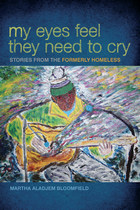
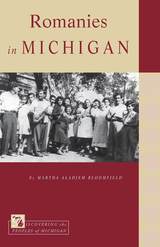
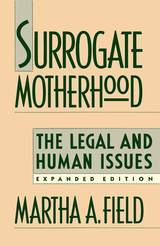
With an Expanded Appendix on the Current Legal Status of Surrogacy Arrangements
A practice known since Biblical times, surrogate motherhood has only recently leaped to prominence as a way of providing babies for childless couples—and leaped to notoriety through the dramatic case of Baby M. Contract surrogacy is officially little more than ten years old, but by 1986 five hundred babies had been born to mothers who gave them up to sperm donor fathers for a fee, and the practice is growing rapidly. Martha Field examines the myriad legal complexities that today enmesh surrogate motherhood, and also looks beyond existing legal rules to ask what society wants from surrogacy.
A man’s desire to be a “biological” parent even when his wife is infertile—the father’s wife usually adopts the child—has led to this new kind of family, and modern technology could further extend surrogacy’s appeal by making gestational surrogates available to couples who provide both egg and sperm. But is surrogacy a form of babyselling? Is the practice a private matter covered by contract law, or does adoption law govern? Is it good or bad social and public policy to leave surrogacy unregulated? Should the law allow, encourage, discourage, or prohibit surrogate motherhood? Ultimately the answers will depend on what the American public wants.
In the difficult process of sorting out such vexing questions, Martha Field has written a landmark book. Showing that the problem is rather too much applicable law than too little, she discusses contract law and constitutional law, custody and adoption law, and the rights of biological fathers as well as the laws governing sperm donation. Competing values are involved all along the legal and social spectrum. Field suggests that a federal prohibition would be most effective if banning surrogacy is the aim, but federal prohibition might not be chosen for a variety of reasons: a preference for regulating surrogacy instead of driving it underground; a preference for allowing regulation and variation by state; or a respect for the interests of people who want to enter surrogacy arrangements. Since the law can support a wide variety of positions, Field offers one that seems best to reconcile the competing values at stake. Whether or not paid surrogacy is made illegal, she suggests that a surrogate mother retain the option of abiding by or canceling the contract up to the time she freely gives the child to the adopting couple. And if she cancels the contract, she should be entitled to custody without having to prove in court that she would be a better parent than the father.

The Sweetness of Freedom presents an eclectic grouping of late nineteenth- and twentieth-century immigrants' narratives and the personal artifacts, historical documents, and photographs these travelers brought on their journeys to Michigan. Most of the oral histories in this volume are based on interviews conducted with the immigrants themselves.
Some of the immigrants presented here hoped to gain better education and jobs. Others—refugees—fled their homelands because of war, poverty, repression, religious persecution, or ethnic discrimination. All dreamt of freedom and opportunity. They tell why they left their homelands, why they chose to settle in Michigan, and what they brought or left behind. Some wanted to preserve their heritage, religious customs, traditions, and ethnic identity. Others wanted to forget past conflicts and lost family members. Their stories reveal how they established new lives far away from home, how they endured homesickness and separation, what they gave up and what they gained.
READERS
Browse our collection.
PUBLISHERS
See BiblioVault's publisher services.
STUDENT SERVICES
Files for college accessibility offices.
UChicago Accessibility Resources
home | accessibility | search | about | contact us
BiblioVault ® 2001 - 2024
The University of Chicago Press









